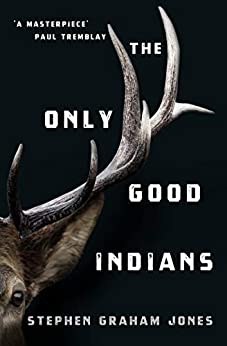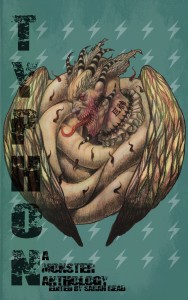“Q: What’s the key to suspense? A: I’ll tell you later.”
Thrill Me by Benjamin Percy
My first exposure to Benjamin Percy came through Iowa State University. I wasn’t a student of his. I left Ames a few years prior to his arrival. I kept up with the English department news and saw an article about him. I remember reading about Percy and sensing a missed opportunity.
In him, I sensed a kindred spirit. Classically-trained, but genre-inclusive. Blue-collar sensibilities. A dark aesthetic. While I am extremely grateful for the things I learned as an undergraduate English major at Iowa State, Benjamin Percy seemed like the sort of writer I could relate to, as if I had narrowly missed a class co-taught by Raymond Carver and Stephen King.
I’ve had Thrill Me on my to-read list for a while. Unfortunately, it got lost for a couple of years in my massive Amazon wishlist. When it popped up again a week ago, I jumped at the chance.
Thrill Me is a somewhat niche craft book. You won’t find basic grammar and mechanics here. Want to read about assonance, consonance, and the musicality of the sentence. Go find John Gardner. Percy’s cover screams “Thrill Me,” and that is what this book is about. It gets down and dirty with plotting, tension, and tone. It’s lean and focused, part a personal history of Percy’s writing career, sure, but these moments are used to illustrate specific points about the craft of writing thrilling fiction.
Percy addresses voice and violence, tension and suspense, and how to earn every inch as a working writer. In many ways, it’s exactly the sort of craft book I expected from Benjamin Percy. He’s been a favorite of mine for quite some time, and while the book doesn’t exactly replace the experience I might have had with Percy as a young(ish) writer, it did give me a greater appreciation of Percy as a craftsman and made me eager to get back to my own work.
You can’t ask much more of a craft book than that.
5/5
“When you let the camera linger, when you crowd a scene with details, you are announcing that everything is important, and if you do this constantly, then you are also saying that everything is important, and when everything is important, nothing is important.”
Thrill Me by Benjamin Percy



 They say that my Grandpa Dale won’t be around much longer. Hospice has been called, and he’s ready to go home to my Grandma, who passed on 21 years ago. As I’ve worked to process that, I’ve been thinking about his influence upon my life, searching for the parts of me that may have come from him.
They say that my Grandpa Dale won’t be around much longer. Hospice has been called, and he’s ready to go home to my Grandma, who passed on 21 years ago. As I’ve worked to process that, I’ve been thinking about his influence upon my life, searching for the parts of me that may have come from him. I once wrote a poem titled “Crow, Why Do You Cry.” It appeared in Illumen magazine a few years ago. The original title had been “Memorial Day,” and the crow kawed to bring attention to the graveyard, to ancestors and loved ones who are forgotten on all but a single day in the year. The poem was about me.
I once wrote a poem titled “Crow, Why Do You Cry.” It appeared in Illumen magazine a few years ago. The original title had been “Memorial Day,” and the crow kawed to bring attention to the graveyard, to ancestors and loved ones who are forgotten on all but a single day in the year. The poem was about me. MidAmeriCon II is coming up sooner than you would think. The full programming schedule has been released on the MidAmeriCon website. You can find it
MidAmeriCon II is coming up sooner than you would think. The full programming schedule has been released on the MidAmeriCon website. You can find it 